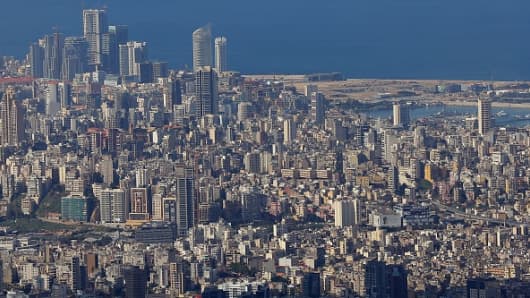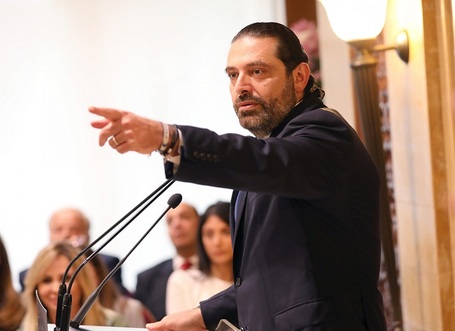
by Natasha Turak | @NatashaTurak cnbc.com —— The cost of insuring Lebanese debt has hit its lowest level this year on the back of some reassuring news for investors: The country has finally formed its government after nine months of gridlock, and state officials revealed they are in talks over financial support for a floundering economy. Lebanon’s five-year credit default swaps, or the price of insuring the country’s debt against a default, fell to $694 this week from a high of $900 in January, levels not seen since November last year. But markets have yet to see the change that will unlock $11 billion in funds pledged by international donors to the small Levantine country at the Paris Cedre conference last April. The financial support rests on the condition of direly needed reform in the areas of corruption, subsidies and public-sector spending. The new government will “most certainly” introduce austerity measures to shore up international and bond market confidence, according to political risk consultancy Eurasia Group — and that will not be easy.
Unpopular, yet urgent, reforms “The issue of cost cutting will prove challenging, though some cuts are also likely,” said Ayham Kamel, Eurasia’s practice head for the Middle East and North Africa (MENA). “On balance, these positive reforms will not be overly ambitious and could slow over the long term.” Many of the reforms are also unlikely to sit well with the Lebanese population. “If it’s taken nine months to form a government, it will be extremely difficult to agree on the details of an aggressive (and unpopular) fiscal tightening. The only other plausible option to deal with the public finances would be debt restructuring,” research consultancy Capital Economics said in a weekly report Thursday. One key area of reform is the electricity sector — Lebanon suffers daily power outages while the state power company, Electricite Du Liban, is awash in subsidies. Reforming this sector would cover a huge part of the fiscal consolidation promised to donors in April, but Kamel notes that this has thus far been prevented due to “vested interests.” Overhauling the electricity sector, and the infrastructure upgrades that would come with that, is one of the new government’s first priorities, a top advisor to the Lebanese prime minister told media in an interview earlier this week.





